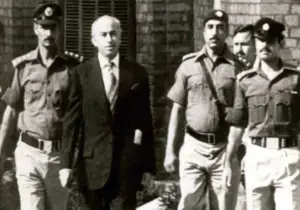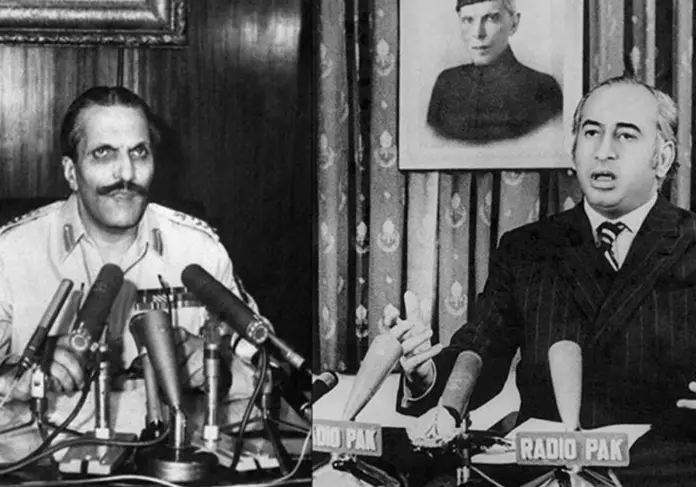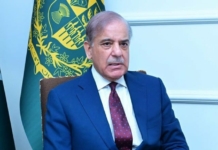Elections are a fundamental aspect of a democratic system, as they provide citizens with the opportunity to choose their leaders and hold them accountable for their actions. When elections are delayed, citizens are denied this right, and their voices are silenced. This undermines the very foundation of democracy, which is built on the principle of popular sovereignty.
As there is a lot of talk about “election stalling” tactics now and former prime minister Imran Khan claims that the present PDM-led government is frightened to hold elections we need to travel back in time to observe what transpired in 1977 when the same tactics were used.
Despite the fact that the scenarios in 1977 and 2023 were significantly different, it is never too late to learn from history.
General elections were scheduled for Pakistan in 1977 after the Pakistan People’s Party (PPP), the country’s leading party, had served out its mandate. The postponement of the polls, however, sparked a political crisis that eventually resulted in a military coup.
The PPP was accused of rigging the election, and the opposition parties urged the government to hold free and fair elections. As a result of the opposition’s demands going unmet by the PPP government, headed by Prime Minister Zulfiqar Ali Bhutto, there were large demonstrations and strikes nationwide.
The military, under the command of General Zia-ul-Haq, intervened as the demonstrations grew more violent and established martial law. The military seized power after Bhutto was detained.

The military government promised to hold new elections within 90 days, but these were postponed several times. Finally, the elections were held in 1985, eight years after they were originally scheduled. However, these elections were held under a non-party system, which was heavily criticized by the opposition parties.
The delay in holding the elections was a significant blow to Pakistan’s democracy. The military government that came to power after the coup was authoritarian and oppressive as per many analysts who used to cover events at that time. The military regime was characterized by human rights abuses, censorship, and a crackdown on political dissent.

In addition, the postponement of the elections created a political void that allowed the military to take over the administration. In consequence, military rule weakened democratic institutions and increased the military’s influence over politics.
In Pakistan’s history, the postponed elections in 1977 were a significant turning point. Due to the delay, a political crisis developed, which ultimately resulted in a military coup and the decline of democracy in the country. Today, Pakistan is still dealing with the effects of these incidents as it struggles with issues relating to democracy and military interference in politics.
Elections are a key component of a democratic society because they provide people the chance to select their leaders and hold them responsible for their actions. Elections that are postponed deny citizens their rights and muffle their voices. The cornerstone of democracy, which is based on the idea of people’s sovereignty, is being threatened by this.
Delaying elections can create a political vacuum that we are currently experiencing in Pakistan, which can be exploited by authoritarian leaders or groups to seize power. Without regular elections, there is no mechanism in place to ensure that leaders are held accountable for their actions or to prevent them from amassing too much power.
Election delays can undermine public confidence in democratic institutions as people start to doubt whether their government truly represents their interests. Political unrest, demonstrations, and other types of social and political instability may result from this.
It may also have an impact on the economy because unstable political regimes may make foreign partners and investors wary of doing business with them. This may result in a slowdown in economic growth and a worsening of inequality and poverty.







